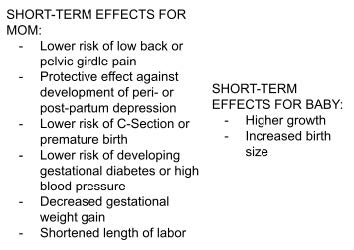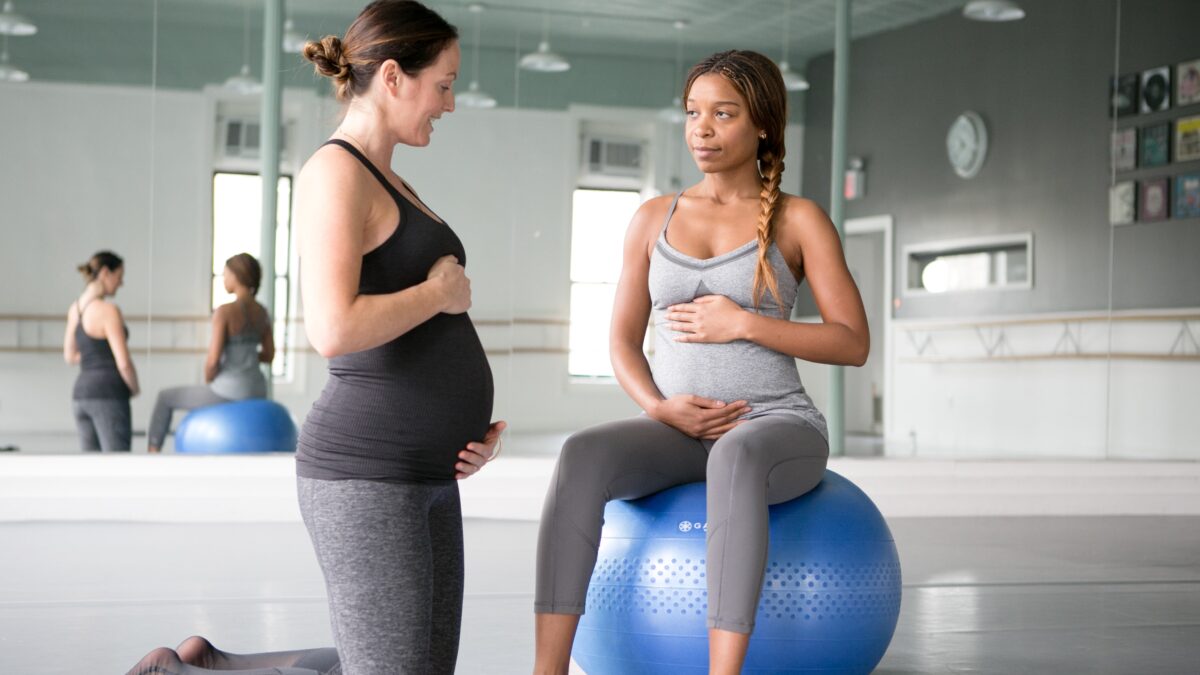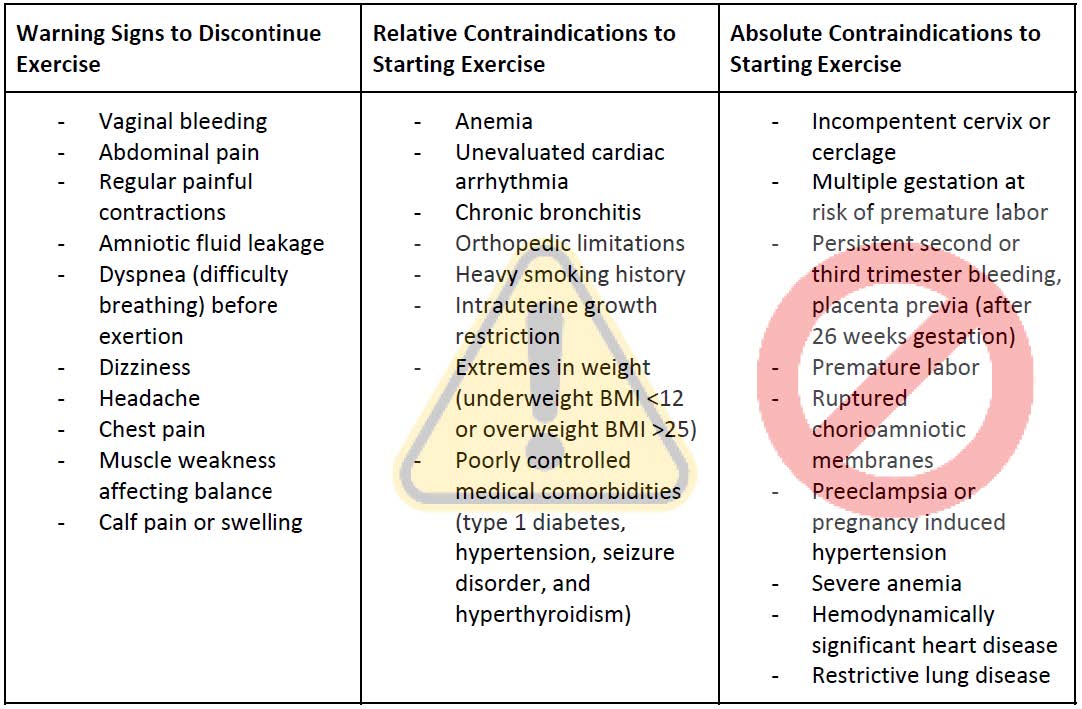
Gynecologists, Obstetricians, and Physical Therapists alike defer to The American College of Obstetricians and Gynecologists, or ACOG, when considering exercise while pregnant. The College combines the most current medical research and suggests guidelines based on multiple studies.
The latest ACOG recommendations for exercise in pregnancy communicates that exercise before, during all three trimesters, and after pregnancy is generally safe and desirable for both mother and baby (Birsner & Gyamfi-Bannerman, 2020).
It is still recommended that you discuss your exercise plans with your Obstetrician or another member of the prenatal medical team for exercise clearance. In this post we will cover common questions regarding exercise during pregnancy like what types of exercise are safe, when is exercise safe, etc.

Why Should I Exercise, Especially If I Wasn’t Prior to Being Pregnant?
Regardless of your prior exercise level if you are healthy and get clearance from your OBGYN, exercising while pregnant is considered a low risk activity (Birsner & Gyamfi-Bannerman, 2020). In fact, it has actually been shown that exercising while pregnant can produce positive short- and long-term effects for both mother and baby. In addition, many health professionals support the start of exercise for pregnant women who had not previously been exercising because this is a time where women are consistently seeing a medical professional. Therefore if problems do arise you can get help or advice sooner rather than later.
One of the more common concerns surrounding exercising while pregnant includes the idea that exercise puts the baby or the pregnancy at risk. Fortunately, time and time again studies have shown that there is no increased risk of miscarriage or altered obstetric outcomes when healthy pregnant women exercise (Newton & May, 2017).
…”there is no increased risk of miscarriage or altered obstetric outcomes when healthy pregnant women exercise.”
Listed below are other short-term benefits a woman can expect when introducing or continuing exercise during her pregnancy (Barakat et al, 2018; Beetham et al, 2019; Dipietro et al, 2019; Newton & May, 2017; Poyatos-León et al, 2017)

One significant documented long-term effect to note is that women who exercised while pregnant exacted an epigenetic impact or multi-generational effect. Meaning that exercising while pregnant can not only help your child’s general health, but also your future grandchildren’s (Newton & May, 2017)!

What Kind of Exercise While Pregnant is Safe and When is it Safe?
Start exercising as soon as you can! Your OBGYN will notify you if you have any risk factors requiring a pause on exercise throughout your pregnancy. For most pregnant women the goal is moderate-intensity exercise for 20-30 minutes a day for most or all days of the week (Birsner & Gyamfi-Bannerman, 2020). Moderate-intensity exercise is most easily defined by The Talk Test. If you can hold a conversation while exercising but can’t sing this is moderate-intensity!
The most researched modes of exercise in the pregnant population includes walking, stationary cycling, aerobic exercises, dancing, resistance training, stretching, and water aerobics. All of these are safe and recommended. Exercises or activities to avoid include contact sports, exercise with high risk of falling, exercising in high heat environments (>90 degrees F), and other high injury risk activities like SCUBA or skydiving.

Are There Exercises I Can Do That Will Be Beneficial For Labor?
Labor and delivery has actually been shown to reduce by 30-50 minutes in women who exercised during their pregnancies (Barakat et al, 2018).
It’s hypothesized that this is because women who exercised also demonstrated higher uterine contractility i.e. stronger uterine muscles!
Specific exercises noted in research for eased labor and delivery include breathing exercises, pelvic floor musculature exercises, and yoga.
When is Exercise While Pregnant Not Safe?

When considering exercise while pregnant it is always important to be in communication with your medical team! It can also be helpful to come into a PT for guided exercise! If you want to do more of your own research we recommend visiting https://www.acog.org/womens-health.
Interested in working with one of our Physical Therapists? Schedule now using the button below!
Schedule Now
This post was written by Dr. Lynelle Decker in August of 2021.